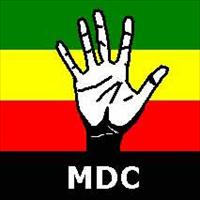ZIMBABWE: Opposition complains of pre-election intimidation

Both groups of the split main Zimbabwean opposition party have lodged complaints with the Zimbabwe Electoral Commission (ZEC) that their candidates are being harassed by the police ahead of the general elections on 29 March.
The two factions of the Movement for Democratic Change (MDC) have each claimed that their members have either been arrested, abducted or beaten up by the police, and have also alleged acts of violence against their supporters by the ruling ZANU-PF party.
"The police are acting in a partisan manner, banning our candidates and their supporters from conducting door-to-door campaigns, especially in the city," said Nelson Chamisa, spokesman for the MDC faction led by Morgan Tsvangirai.
On 29 February, police arrested Marvelous Khumalo, an MDC parliamentary candidate, and 11 other party supporters during a campaign in Chitungiza, a high-density satellite township 25km south of the capital, Harare. Kumalo is still in custody.
Police commissioner-general Augustine Chihuri brushed aside claims that the police were partisan, and said Khumalo and his campaign team had been arrested for violent behaviour. "Those people were arrested for a crime they know - they were carrying weapons and campaigning aggressively. The police are simply doing their job of maintaining law and order."
Chihuri maintained that the police were impartial in discharging their duties, as they had also arrested members of the ruling ZANU-PF in the past weeks for engaging in acts of violence. A ZANU-PF lawmaker, Isaiah Shumba, was arrested recently for brandishing a gun in public.
The commissioner-general has warned that police would use force to deal with perpetrators of violence in the election period.
A ZANU-PF official, Elliot Manyika, has also dismissed allegations of acts of violence by his party's activists against MDC supporters. "We are not a violent party, we are carrying out our campaign peacefully, and such reports [of violence] really are false," he told IRIN.
Abednico Bhebhe, a spokesman for the rival MDC faction, led by academic Arthur Mutambara, said his group had lodged a complaint with the electoral authorities, protesting intimidation of supporters. "Intimidation is rampant and the conditions are not conducive for a free and fair election," he claimed.
No airtime
The MDC has also accused the Zimbabwe Broadcasting Corporation (ZBC), the state broadcaster, for denying its candidates airtime. "It is our view that ZBC has abused its privilege to give unfair advantage to ZANU-PF ... even though, as a publicly funded broadcaster, you are expected to give equal coverage to all political players," the Tsvangirai-led MDC group wrote in a letter of complaint to the ZBC management.
Analysts said the opposition's complaints did not bode well for the government, as a pre-election assessment team from the Southern African Development Community (SADC) was in the country to assess the situation.
Tanki Mothae, director of SADC's Organ on Politics, Defence and Security, told IRIN that the team had arrived in Zimbabwe in the third week of February and had already compiled its preliminary report on conditions ahead of the elections.
Mothae said he would not divulge the contents of the report, neither would he comment on whether the SADC team had reported the alleged violence and intimidation by the MDC.
"Our entire team is leaving on Sunday [9 March] and about 150 election observers have been accredited. As far as we are concerned, everything is going on well and we are looking forward to this election," Monthae said.
Civic organisations pointed out that the SADC should have deployed observers to assess pre-election conditions, including the registration of voters and public inspection of the voters' roll, as well as the general environment, more than a month ago. They argued that prevailing conditions did not favour a free and fair election.
Xolani Zitha, coordinator of the Crisis in Zimbabwe Coalition (CZC), a civic organisations umbrella body, said the state-run media's refusal to cover opposition candidates was a violation of the SADC guidelines on the conduct of a free and fair election.
"Our teams on the ground report that there is intimidation going on and we have also observed ... the conduct of the police ... when dealing with opposition members," Zitha alleged. "We urge the SADC team to consult widely, so that we as civil society can also make an input of such concerns to their reports."
President Robert Mugabe, who is facing stiff challenges in the presidential race from the MDC's Tsvangirai and Simba Makoni, a former ZANU-PF member standing as an independent candidate, has said his government would only invite "friendly" countries, such as those in SADC, to observe the elections.
European countries have been banned from observing the polls. Local observers have been invited to submit their applications, but organisations such as the CZC may not be accredited because according to Zitha, "They see us as hostile elements."
 Back and Next - Back and Next
Back and Next - Back and Next See Also - See Also
See Also - See Also